Update: A version of this essay was published in The Better India. Here is the link to the article : The Story of My Plate:Finding Where Our Food Comes From
I had a green tomato week in my kitchen once.
During one of his trips to Wayanad, my Father-in-law had access to a fruit and vegetable garden. He came back home armed with a basket full of green tomatoes and a bunch of farm stories. Over the next few days, different versions of green tomatoes landed on our plates. It was chopped, boiled with tamarind extract, freshly ground spices and made into a delicious gravy. It was sautèd with dried red chillies, lentils, and ground to a thick paste. It was sautèd with a paste of coconut, cumin, green chillies and mixed with yogurt. As much I remember the recipe hunts to make repeat appearances as innovative as possible, I also remember how it felt to be partially connected to what was on my plate. The number of tomatoes consumed has been grossly exaggerated with each conversation since then. This was one of those moments when we knew the story of what was on our plates.
In her book “Bread, Wine, Chocolate :The Slow loss of foods we love”, environmental journalist Simran Preeti Sethi talks about her love for food and writes -“But despite this love, I had never thought deeply about where it came from- or where any of my favorite foods came from-beyond a fuzzy notion of “farmers in fields” and “workers in factories.” They were the people I considered in the abstract but did not know.”
Knowing the source of our food often brings out the hibernating braggart in us. This is probably why we never fail to mention which bakery the chocolate cake that we love so much, comes from. The origins tell us more about the food than the food itself. Shortly after I read these lines in “Bread, Wine and Chocolate” I spoke to Ishira Mehta and Puneet Jhajharia founders of Crop- Connect who are trying to bridge the gap between farmers and urban consumers. The conversation was supposed to be similar to what I have had with entrepreneurs all this while. Except, now I was thinking about something entirely different. I realized that this is no longer an article about another entrepreneurial journey in the food sector. This is about how far we are, literally and figuratively from the food and its maker.
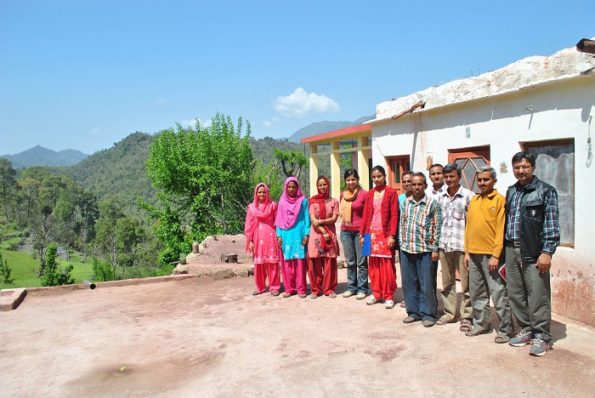
Lawyer, politician, and gastronome Jean Anthelme Brillat-Savarin once wrote, “Tell me what you eat and I will tell you what you are.” The urban population in India is trying its best to fit healthy food choices into its fast-paced lifestyle. Our expectation with what we choose to put on our plate is nothing short of a miracle. However, we forget that its implications go beyond our intentions and the circumference of our plates. In defining our food choices we forget to be grateful for what we get. This is probably why we need people like Puneet, Ishira, and a few others. They help us tell the story of what’s on our plate.
Ishira and Puneet’s journey to establish Crop-Connect is a long one- 3 years, 20 states across India and about 70,000 km long. “At one point we had so many varieties of rice that they would cook a particular type of rice depending on the fish/vegetable that was supposed to be served with it. First 3 years we spent visiting farmers, consulting, learning and unlearning. Through our own journey, we witnessed how disconnected the urban population had become with its food. We realized that consumers need to build an awareness of the food on their plates. It’s not just about awareness, but also about appreciating what we get”.
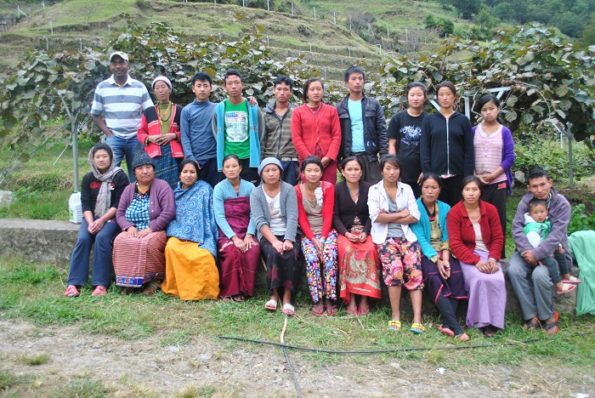
Ishira has an MPA in International Development from Harvard Kennedy School and an MSc in Comparative Politics from London School of Economics. She has worked for the International Finance Corporation on projects dealing with sustainable supply chains in the Fagricultural sector among others. She has also worked with the Self Employed Women’s Association (SEWA) which aims to provide rural women with financial and social security. Puneet has a Master’s degree from Cornell University and an MBA from NYU Stern School of Business. He worked as Vice President (Technology) in Goldman Sachs New York. Puneet set up the India office for Grassroots Business Fund (GBF) in 2009. GBF works towards sustainable livelihood for people with low incomes. He also has extensive experience working with NGO’s and farmer groups. “We found that farmers were producing exactly what the urban population was looking for, but the path between them was highly disrupted by middlemen and people who did not connect the dots. There are many organizations and NGO’s that train farmer groups. Training is mostly aimed at capacity building, and rarely focuses on understanding the market side of the equation.” Puneet adds that when he was looking into areas for investing, he could not find a single company in the agricultural sector for the same. “There was not much being done to understand and improve market linkages.”
So they set up Crop-Connect in 2013 to help farmers understand and operate according to market demands. A significant step in this regard is connecting remote kiwi farms in Northeast India with major urban markets by helping the farmers in capacity building, processing, and transportation. Crop-Connect also provides consultation and training services for farmers. But the founders believe this is a two-way street. While farmers need to be more aware of the market, consumers need to realize that there are a plethora of products that our farming community comes up with, which exactly fit our needs.
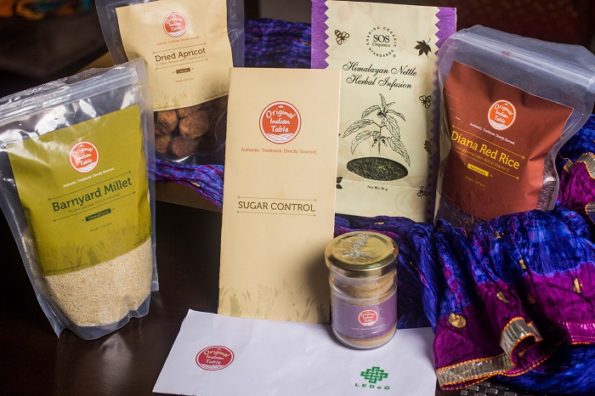
Original Indian Table, the brand under Crop-Connect was launched in August 2015. Their curated boxes consist of carefully picked ingredients and products from different farms, across the country. For e.g.., their Diabetic box consists of a rice variety from Karnataka, a millet variety from Uttarakhand and a Jamun powder which is made by tribal farmers in Jharkhand. Apart from these boxes they also have retail products like black rice, infused Himalayan rock salts etc. which they sell through online portals (products can be purchased through their website and through Amazon.in). “Our farmers are rich with traditional knowledge which rarely comes to the forefront. For eg., There are so many varieties of millets which are inherently pest resistant, drought resistant and adapted to the local agro-climate. This makes them as natural and pesticide free as the urban population expects their food to be.”
The boxes come with brochures that have product details, nutritional information, recipes, information on how they must be eaten and information about the farmer. Crop-Connect is now also looking at partnering with chefs and restaurants, to showcase traditional foods and regional alternatives that people have long forgotten.
Vishalakshi Padmanabhan is a Chartered Accountant by qualification and a farmer by passion. She started “Buffalo Back” in 2012 to share with the urban population of Bangalore the products from her farm. She entered the world of farming when she bought a barren piece of land and spent three years reviving it. “I met many farmers during that time and travelled a lot. Experienced farmers gave me advice on how I should first start with building resources for the land. They gave me tips on water harvesting, growing windbreaks and on soil preservation. I read up a lot on sustainable farming practices. After 3 years of working on the land, I was able to actually grow food and call it a farm.” Vishalakshi’s encounters with many farmers made her aware of the fact that the younger generations of these farming families were slowly moving away from the trade, and working in the city as drivers or as domestic help. Manjula, who runs the Buffalo Back store grew up in a family of farmers and moved to the city post her marriage. “She was working as a domestic help in the city when I met her. She often spoke about her farm and about how she was involved in all the activities. That is when I realized that if Manjula and others like her cannot go back to their respective farms for various reasons, they would still like to have that connect with farming.”
Vishalakshi trained Manjula in using computers, running the store, and handling customer queries. Vishalakshi is now working on establishing an enterprise where people like Manjula can still be a part of the farming community. Buffalo Back today has two branches and 80% of what they sell comes from small farmers, giving them direct market access. They focus predominantly on organically grown produce, but as Vishalakshi states, many of these farmers have been practicing organic farming since the beginning of their farming days.
Buffalo Back’s Facebook page is filled with information and updates about their products, farming experiments and even simple recipes. Through the newsletters she writes, Vishalakshi gives people a behind the curtain view of how “Buffalo Back” comes up with its products and shares her travel stories. “We have cooking classes every once in a while. The response is usually good. The interest people show to our newsletters or classes is directly related to how interested they are in food and cooking. The rest are just happy to know that their source of food is a good one. To completely understand the food source and the difficulties in bringing food to the plate, one must have a fundamental interest in food. ”
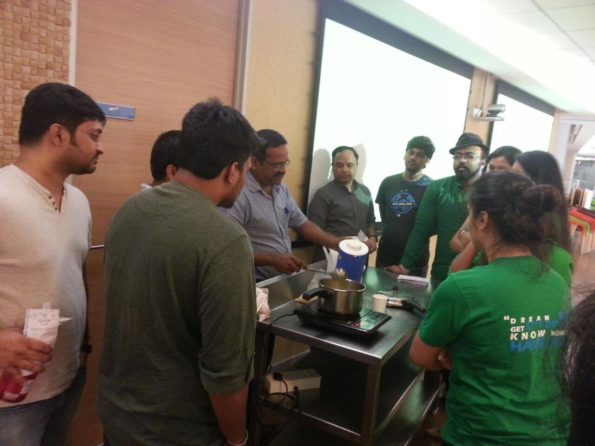
Arun Kaulige founder of Kaulige Foods also believes in this philosophy getting people interested in food. “ My dream is to reinvent and adapt millets, to suit the modern palate. Current efforts are towards reviving and popularizing millets via the social enterprise Kaulige Foods. We specialize in millet cooking workshop, catering, and healthy bakes.” An engineer by qualification with over a decade experience in the steel industry, Arun’s shift to the world of millets was inspired by Earth360.in, a venture founded by Dinesh Kumar, which is actively trying to improve the millet value chain. Small millet production in India has seen a 76% decrease between 1961 and 2009 (Reference). “Part of what I am trying to do at the farmer end is helping them in holding on to millets, by procuring seeds, educating farmers about the benefits of growing millets and helping them in processing millets. We also try and encourage collaborative efforts between several small farms. We collect the yield from these farms and find suitable markets.” A large part of Arun’s work is conducting workshops in corporate offices and apartment complexes. These workshops demonstrate using millets in simple everyday recipes, as well as show the participants how millet seeds and the final products look like. “ Workshops are a great way to connect with the urban population. There are some participants who join us in the cooking process, some who share recipes that their grandparents would eat, and some who just want to see how easy it is to incorporate them into their diets.” Arun adds that these workshops often bring about an element of nostalgia and many stories are shared.
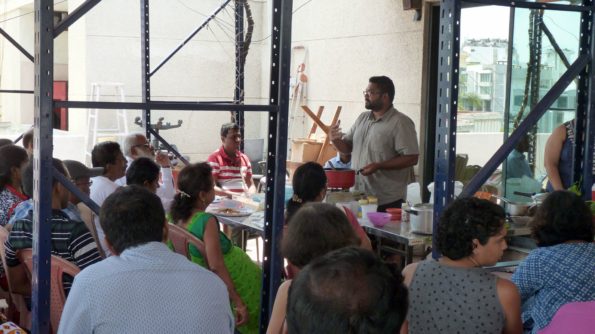
Arshiya Bose founder of Black Baza Coffee has a unique reason to let the urban population know which farm their coffee comes from. By establishing farm connections through her venture, she encourages small and medium coffee farmers to follow conservation-friendly practices of growing coffee. The venture monitors not just coffee sales, but also the impact of these farming practices on biodiversity. While researching for her Ph.D. wherein she was looking into “incentive based conservation models”, Arshiya realized that setting up a social enterprise and giving better market access could be one of the ways to help farmers follow shade farming of coffee. This would, in turn, make them commit to planting more trees,conserving natural water bodies, and factoring in biodiversity while growing great coffee.
Black Baza Coffee encourages consumers to write back to the farmers by providing postcards. Arshiya believes that this will help the farmers realize that their efforts are being appreciated by someone who has never had the opportunity to visit their farms. Consumers are also able to trace their cups back to the source. Through their Facebook page and blog posts, Black Baza Coffee gives its followers a sneak peak of lush green coffee farms, related processes, and some interesting coffee tips. A recent post in the Black Baza Coffee Blog “Crop to Cup”, written by Shankary Krishnamoorthy, takes the reader through the coffee farms in Billiranga Hills while discussing sustainable farming methods.
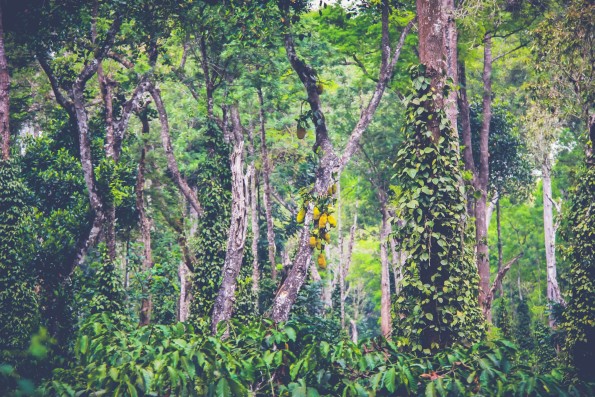
The food scenario among the urban population is increasingly being dominated by what they see online.“The Advent of ‘Me’-tailing and how India’s shoppers are now buying online”, a Nielsen Feature report shows that a quarter of the urban population has shown an interest in purchasing food/ beverage online. While the grocery shopping activity is primarily dominated by conducting research on product prices and reviews, obtaining product information is also one of the major activities. These facts probably mean very little to farmers, and therefore, it becomes imperative that the people who are facilitating communication between the two worlds are making sure relevant information is conveyed through the right means. Whether it is providing recipes, using social media for updates, conducting workshops, or sharing their travel stories, these ventures are making sure that the urban population finds what it wants, and understands its value as well.
Towards the end of her Ted Talk “We need to feed the whole world“, Food and Agriculture expert Dr. Louise Fresco asks, “When was the last time you went to a farm and talked to a farmer?”. This question stayed with me for a while. Despite spending most of my days writing about food entrepreneurs I have never once made an effort to visit a farm or write about a farmer. Isn’t this the most fundamental form of food entrepreneurship? To look at food from its source is to look at food as food, beyond brands, beyond packets on the shelves and beyond add-ons in our virtual cart. To look at food from its source is to truly understand the terminologies like organic, sustainable, “farm to the plate” that we so conveniently use to describe our food choices. To look at food from its source is to be truly grateful for what we get and to understand that we are all in this together. As Shankary Krishnamoorthy writes in her post about coffee, which probably resonates for all things food – “A good cup of coffee is more than just a brand! It’s tied to the very essence of how we live and let live and how interconnected we are to everything around us for our survival and health.”
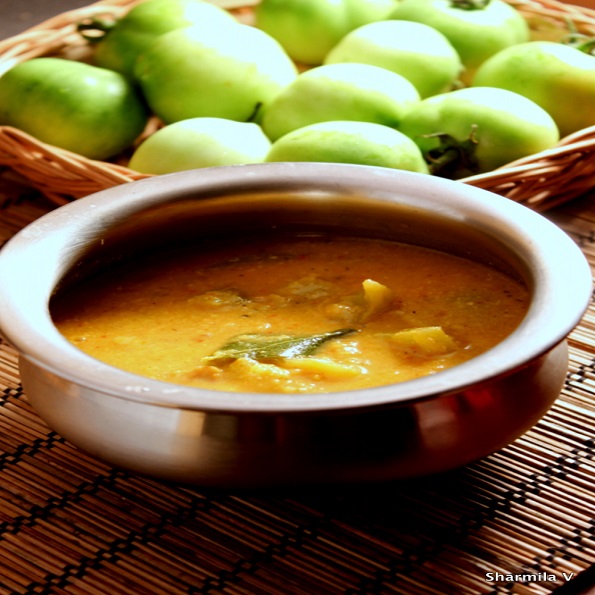
Very informative article. OrganicMandya is one such initiative.
Very informative article